Back to School: Sleep, Insomnia and its impact on children, learning, education and schools. The Guide for Parents 2021.
In the tenth of our special Back to School guides written specifically to help parents, we look at the issue and struggles of childhood insomnia, its causes and the treatment and tools available to help resolve it. We also look at how anxiety stemming from Covid-19 has increased childhood insomnia across the world.
What is Insomnia?
All of us have had trouble sleeping at some point through our lives. A family problem, worries about friendships, general anxiety or pending exams for example, can all result in a tough time sleeping. Having the odd bad nights sleep is bearable and manageable and fairly normal, but when it becomes common, regular and chronic it can be attributed to a sleep disorder such as insomnia. Estimates put those of us, as adults, that feel that we sleep well at just 10% of us – whilst those of us facing sleep issues amount to over 60% of the population. Adults need eight hours sleep – and few of us are getting this.
The common indicators of insomnia include:
- Difficulty in dropping off to sleep
- Waking several times throughout the night
- Waking up very early and not being able to get back off to sleep
- Feeling very tired after waking in the morning
- Difficulty napping through the day even though you are very tired
- Feeling drained and irritable throughout the day
- Difficulty in concentrating due to fatigue
- Hyperactivity
- Aggression and other behavioural problems
- Increased incidents of making errors and causing accidents
- Endlessly counting sheep to no obvious effect.
These symptoms can linger for weeks or even years. Chronic Insomnia is defined as an issue with sleeping that occurs more than 3 times per week for more than 3 months. The symptoms of short-term insomnia are almost indistinguishable from chronic insomnia; with the difference being that the sleep problems occur less frequently and for a shorter length of time. The variance is important to highlight however, as the potential causes and resulting treatments for each type is not the same.
For children, lack of sleep can impact on education and mental health.
Understanding how the sleep cycle works can offers some insight into what triggers maybe causing sleep disturbances in your child.
There are 5 stages of the sleep cycle, Stages 1, 2, 3, 4 and REM.
Stages 1 and 2 are typically where our children start to fall asleep. Breathing and heart rate slow down and the body temperature dips. It is fairly easy to be woken up during this stage. Stages 3 and 4 are deep sleep, this can be the hardest to achieve, but is important for a restful nights sleep. This level of sleep is more difficult to wake up from. The most well-known sleep level is Rapid Eye Movement or REM sleep: this is characterized by lots of eye movement and the presence of dreams, it is the lightest sleep and is the last stage in the sleep cycle.
When the sleep cycle is interrupted often and over a period of time, and where there is no other identified underlying cause (such as a noisy snorer, uncomfortable mattress or medical condition), it can be attributed to the sleep disorder, insomnia.
How Many Children Are Affected By Insomnia?
The American Academy of Paediatrics estimates that sleep problems affect up to 50% of children and 40% of adolescents at some point in their childhood and the situation appears to be getting worse. In fact, according to BBC Panorama, in the UK, the number of children under 14 being admitted to hospital with sleep disorders had tripled in the last 10 years. All of us, as parents will have our own stories. For many children, the problem is getting to sleep at all, particularly as they get older and refuse bed time books in favour of YouTube videos on phones and games consoles to, supposedly, get them “over the line.” Tiredness often proliferates as dependency on electronics results in less sleep, not more. This is one of many, many examples of the near limitless issues parents face around sleep.
Covid-19 and Insomnia
Much of the most recent, and significant, increase in child insomnia has occurred over the last 14 months and the correlation to the onset of Covid-19 cannot be a coincidence. There can be no doubt that the last year has been one characterised by change, worry and stress for children as the Covid-19 swept across the globe with all its devastating effects. Aside from worry of the unknown and concerns over the health and safety of loved ones: our children also had the added pressures and strains of switching to online schooling. The abrupt change/halt in routine, severe lack of social interaction with loved ones and the greater community and the freeze of extra curricular activities has undoubtedly caused anxiety, stress and a rise in the number of children suffering from issues with sleeping.
Stephen P Becker of the Cincinnati Children’s Hospital Medical Centre and Alice M Gregory of Goldsmith University of London conducted thorough research into the impact of coronavirus on adolescents. They state in their research paper that the global pandemic is acutely problematic for our growing children:
“Sleep is crucial for child and adolescent health and well-being, and the potential for sleep problems to emerge or worsen during and following the pandemic is high. This may be particularly true for children and adolescents who are at heightened risk for the onset of sleep and mental health disturbances and for those whom developmental changes impacting sleep are rapidly occurring.”
The UK’s Millpond Sleep Clinic reported a 30% rise in the number of sleep inquiries from parents about children aged 5 to 13 compared with the same period in 2018-19. A study conducted by The Sleep Council in April 2020, based on a responses from 2700 people, concluded that there will be long-term impacts of coronavirus on children’s sleep. The study found that since the onset of Covid-19:
- 70% of children under 16 have been going to bed later
- 57% are getting up earlier
- 74% are more reliant on technology
- 43% are finding it harder to fall asleep
- 75% reported Covid related stress
One such parent is Louisa, a mother of 3, who believes that the anxiety from the unprecedented restrictions put in place due to Covid-19 has had a detrimental impact on her daughter’s ability to sleep and consequently, her metal health.
“A few month into the pandemic, with the lockdown and the schools closures, my 11 year old daughter started showing signs of stress. At first she began pulling at her eyelashes until they were gone. Then the sleep issues appeared. Getting to sleep would take a really long time; she would want me in the room with her until she fell asleep, which is a first. Then she started to wake in the night for longer and longer periods of time. Hours. I tried talking with her about what was worrying her, to put her mind at ease, but at that age I think children find it difficult to articulate their worries. She was exhausted and struggled to concentrate on home schooling, she fell behind in her work and that made her worry even more. It was a viscous circle of stress. She is having therapy now, which seems to be helping and some of the Covid restrictions are lifting. Time will tell what impact a year of insomnia will have on her.“
Sarah, a Dubai-based parent, echoes similar worries:
“The loss of my husband’s job, the collapse of normal school life and the worry about catching a completely invisible virus have stressed everyone in the family and both our children probably the most. We have tried to protect them, but their imaginations as children have run riot and it is obvious that they now feel less certainty about just about everything in their lives, despite us doing all we can to keep things ‘normal’ and happy.”
Returning to a regular daily routine as schools have opened again, the resumption of extra curricular activities resume even in part, more contact with extended family and friends and even small reductions in social distancing regulation has overwhelmingly positive effects on children. We also know that children are, generally, resilient. But no-one is predicting the long term impacts of Covid on insomnia and sleep issues facing children.
In the mean time, understanding the broader consequences of insomnia and issues around sleep – and taking steps to mitigate them, is something that we can all do as parents to help our children..
The Impact On Academic Achievement. Can Schools Help?
As parents we know that it goes without saying that not having enough sleep is going to have an impact a person’s health and general well being. Insomnia has been linked to obesity (the urge to reach for sugary snacks for a quick energy boost is strong when you are feeling tired), a weakened immune system, high blood pressure, seizures and strokes – and many other health problems. Insomnia in children specifically, also has a knock on effect on their academic achievement, making it a disorder that can have life-long implications.
Children suffering from insomnia sees impacts on their academic progress in several ways:
- Decreased attention: lack of concentration makes focusing on topics difficult.
- Impaired memory: during sleep the brain stores and strengthens information received through the day, lack of sleep means lack of properly formed memories and data recall.
- Slowed processing: the brain’s ability to take action and to digest and analyse information is lessened.
- Impaired sequential thinking: When sleep is limited the ability to remember series of steps is limited also, such as playing a musical instrument or recalling the times table.
- Reduced Creativity: Creativity is the ability to make connections between previously unconnected thoughts. The mental activity needed to formulate diverse ideas is narrowed with lack of sleep.
- Hyperactivity: Insomnia has been linked with attention deficit issues, which are believed to exacerbate the problem.
Schools may not be able to help directly with insomnia, but they are very well placed to deal with the consequences. Only by making schools aware of the issue, however, can they help. By not making schools aware of insomnia, children can be labelled inaccurately, for example as disruptive, or not caring about learning in class.
It is then vital to discuss your child’s insomnia with their teacher, head of year and the school’s councillor.
As a team (alongside your doctor or sleep specialist) you can review the best way forward to help your child reach their full educational potential with a management plan that is uniquely designed around them and their individual needs.
Usually this will be completed with each school’s Special Educational Needs Department (SEND) or school councillor, who are professionally able to devise an Individual Education Plan (IEP). The plan can help your child to catch up with any missed work or to potentially manage any attention deficit issues, feelings of anxiety and stress or other identified triggers that may be causing the sleep issues or be a result of them.
Schools must always be seen as a parent’s, and child’s, friend. Our experience of UAE school’s is that they really will help – and without judgement.
Sleep Times by Age
Much of the struggle can be in “persuading” children how much sleep they need, particularly as they grow older and battles over bedtimes invariably begin. Many children, for example, between the ages of 7 years and 11 years, ideally need 11 hour sleep – but with a world vying for their attention and inspiration everywhere, this can be hard to achieve.
How Can Sleep Issues Be Managed? Help for Parents.
Getting help from the family doctor or other sleep specialist is always going to be the best option to resolve the sleep problems themselves as quickly as possible. There are a variety of steps, processes and treatments that can be utilized, depending on the individual case.
Create a Routine:
All research and expert advise advocates that creating a consistent bedtime routine that works for your child and family is fundamental to a good nights sleep. The Children’s Sleep Charity found, in fact, that 92% of families solve their child’s sleep problems within 6-months by changing and sticking to a bedtime routine.
- Decide a suitable time to go to bed, (the table below can be a helpful guide) and talk with children about their set bedtime. With younger children you can show them the time on the clock so that they can be prepared in advance.
- Begin a winding down routine that begins 20 minutes before the bedtime that you have decided upon. The routine should be the same each night and should include normal pre-bed activities like having a wash, brushing teeth and changing into clean nightclothes. There is no single right way to set up a bedtime routine. Some kids like to hear a bedtime story and others may want to talk about their day. As long as your child falls asleep easily and sleeps all night, then your bedtime routine is likely to be working well. The goal of a good bedtime routine is for your child to fall asleep on their own, without being rocked and, the increasingly big problem, without relying on screens. There should be no watching of TV or playing video games. This is because, if the child does wake up through the night, they should be able to fall back asleep without needing any extra help from you or a screen. If your child falls asleep watching TV for example, when they wake up through the night, they may feel that they cannot get back to sleep without putting the TV back on again. The problem with this dependence is that they will inevitably take far longer to fall back asleep with the TV on, the blue light from electronics impacts the quality of their sleep, the light and sound may wake them up again and it can also disturb other family members. A rule of no screen time in the bedroom, however difficult at first, is found by many parents to be a game changer.
- Have a limit for how much time you spend with your child in the pre bed routine. Kids can try to drag out the routine by asking for another story or with repeated calls for a snack a drink, bathroom visits or any other excuse that they can think of. Make sure that there is plenty of opportunity to accommodate pre-bed activities and goodnight kiss, without it being extended. Keeping to the same routine at the same time each night is the key.
- Give children a sense of security. In these uncertain times when all of our anxiety levels are heightened, feeling a sense of safety, security and comfort is all the more important. The basic human instinct and need to feel safe is not only for the young. What form the security comfort item takes will massively depend on their age and personality. Whether it is a cuddly toy, a specific blanket, their favourite pair of socks or a picture of a loved one, taking possession of that item at the same time each night will bring the comfort of routine and will, over time, trigger a sleep response.
- The UK’s The Sleep Charity recommends having as dark a room as possible to aid in the production of melatonin, however a low level night-light may be a good option for children who find pitch black disturbing.
- Set the temperature. Being comfortable is a huge part of being able to fall asleep and stay that way. According to a poll conducted by the National Sleep Foundation, 80% of respondents stated that a cool room temperature is one of the most important factors to a good night’s sleep. This can be challenging, especially in the UAE summer months about to descend on all of us. However, our bodies are programmed to experience a dip in core temperature with the setting of the sun, so turning the thermostat down at night may help with temperature regulation and signal your body that it’s time for bed. Doctors recommend approximately 65 degrees Fahrenheit or 18.5 degrees Celsius as the optimum temperature for adults and slightly warmer for little bodies that are still growing (69 degrees Fahrenheit or 20.5 degrees Celsius).
- Getting children into their own bedrooms as soon as possible is also vital. Many parents do find this difficult. Other difficulties can swiftly occur if children are not consistently returned to their bedroom after, for example, a nightmare as they risk becoming dependent on their parents room to fall asleep.
- However difficult, try as far as possible to keep bedtimes consistent at the weekend. If children go to bed later at the weekend, bed time cycles are thrown out and you can be back to square one on the first days of the school week when the last thing they need to be is tired.
Doctors and Other Treatment Options.
If insomnia continues to persist, regardless of the bedtime routine, it may be time to consult your family doctor or sleep specialist to determine what the underlying cause is and to discuss the possibility and need for further intervention.
Try and keep a Sleep Diary before contacting your doctor or specialist. By maintaining a record of sleep patterns, episodes of wakefulness, levels of fatigue during the day and notes of food and drinks children consume, parents can help doctors build a picture of potential triggers and the severity of the insomnia. The more information that medical professionals are given, the more easily they can create a treatment plan that meets the needs of each individual child.
Treatment options can include one or combinations of the following options:
- Melatonin: A naturally occurring hormone that is produced in the brain, melatonin has a vital role in supporting the body’s natural wake – sleep cycle and in promoting a restorative nights sleep. Darkness prompts the pineal gland to start producing melatonin while light causes that production to stop. The result is a regulated circadian rhythm, a synchronised wake-sleep cycle and quality rest.
- Melatonin and Diet: There are also certain foods that help with the body’s natural production of melatonin, because they are high in tryptophan, which is an amino acid that is necessary for making proteins and other important molecules in the body. These foods are known as ‘sleeper foods’ and it is definitely worth popping a few on your shopping cart. Sleeper foods include, turkey, eggs, fish, peanut butter, nuts, seeds and cottage cheese. Cherries (delicious!) make for a healthy snack and are also a natural food that is high in melatonin. On the flip side there are foods that are considered ‘wakers’, named as such because they stimulate neurochemicals in the brain that triggers wakefulness. Anything that contains a lot of sugar is obviously a ‘waker’. To name just a few: chocolate, biscuits, tomato ketchup, granola, a jar of spaghetti sauce, candy and some cereals. Fizzy drinks (also known to cause nightmares) plus caffeine, smoking, and alcohol will all keep peaceful slumber at bay. E-numbers are never any child’s, or adult’s best friend!!!!
- Synthetic Melatonin: There has been much research into the benefits (and downsides) of taking synthetic melatonin as a tool to better nights sleep. Most of these indicate that it is a useful aid in helping children with sleeping difficulties to fall asleep and that its positive effects do increase the total sleep time. However the American Academy of Paediatrics (AAP) states that it should be considered as a short-term tool, and only used as part of a treatment plan designed in association with a doctor to help establish healthier sleep habits. Long-term side effects of its use include daytime drowsiness, headaches, dizziness, and agitation and increased bed-wetting. Arguably, the side effects of the melatonin are less than the impact of sleep deprivation.
- Cognitive Behavioural Therapy: This can be carried out over the phone, online or in person with a sleep specialist to help children get to sleep faster and staying asleep for longer. The therapy focuses on the mind’s connections; thoughts and feeling about sleep and aims to clarify negative misconceptions with positive ones. Treatment usually lasts between 6-8 visits. Should other potential underlying issues of the insomnia be eliminated, focusing on the cause of stress and anxiety may go along way to relieving the symptoms.
Doctors may carry out one or more of the following:
Sleep Study: A sleep study is the monitoring of sleep latency, periods of wakefulness and other information over the course of one night.
Actigraphy: This is an evaluation of sleep patterns over 14 nights, where the subject wears a small body sensor.
Blood tests: the doctor may order a series of blood test to investigate whether there are other underlying medical causes.
Further help
UAE-based organisations that can help include:
- The American Centre of Psychiatry and Neurology Abu Dhabi here and here.
- Kings College Hospital Dubai, here.
Bottom Line? The SchoolsCompared View of Insomnia.
In conclusion, insomnia is a disorder that is commonly underestimated.
For families – and the children who suffer from insomnia, the impacts can be significant, detrimental and far-reaching. Impacting the everyday life of the sufferer and for the extended family, it is not an issue that we should ignore in the hope that it will disappear over time. The effect on a child’s academic achievements alone could have long-term consequences and, in the current environment where schooling has been so terribly disrupted, the impact is magnified.
Watching our children suffer from a lack of sleep can be dreadfully upsetting and you may feel helpless to change it. But it is important to realise that you are not alone and that there is light at the end of the tunnel.
With the rapid distribution of vaccines and perpetual improvements in medical know-how of the handling of this horrid disease, we will begin to see more and more normality creeping back into our lives. Covid-19 related insomnia will hopefully be a thing of the past and the number of children suffering from it will reduce.
If your child’s sleep issues are, however, caused by other factors then following the expert guidelines regarding bed time routines, adapting diet and (in our experience, particularly, reducing screen time and social media) should make great inroads into resolving issues.
Do not expect some changes to be easy – all parents struggle. Removing screens can result, in the short-term, in upset – and getting younger children to stay in bed can also be challenging.
Reaching out to to your family doctor, or sleep specialist, will provide you and your children with further support.
Finally, always make schools aware of issues like this that impact on your child’s learning. They can only help with what they know about – and the last thing anyone needs is for schools to make the wrong assumptions based on not knowing key facts explaining each child’s behaviour. Schools will help.
With patience, perseverance and practice, a good night’s sleep, every night, is perfectly possible.
Sweet dreams.
For further information about general mental health and well being please click this link.
For more information regarding therapist and counselling services in the UAE please click here.
© SchoolsCompared.com. 2023-24. All rights reserved.













































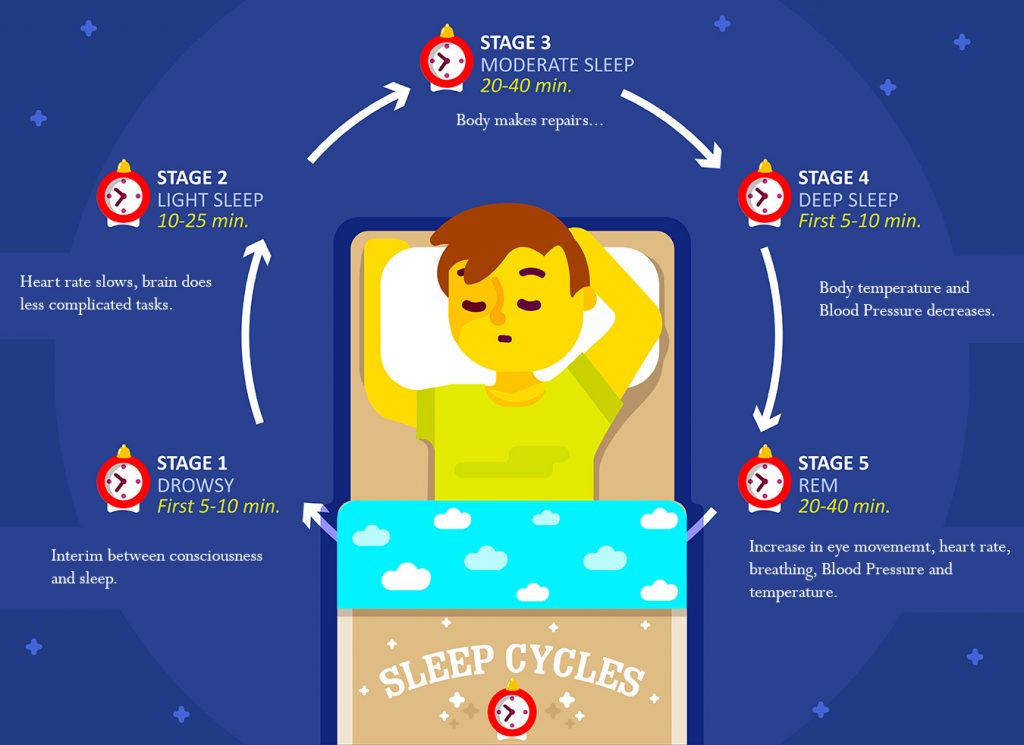
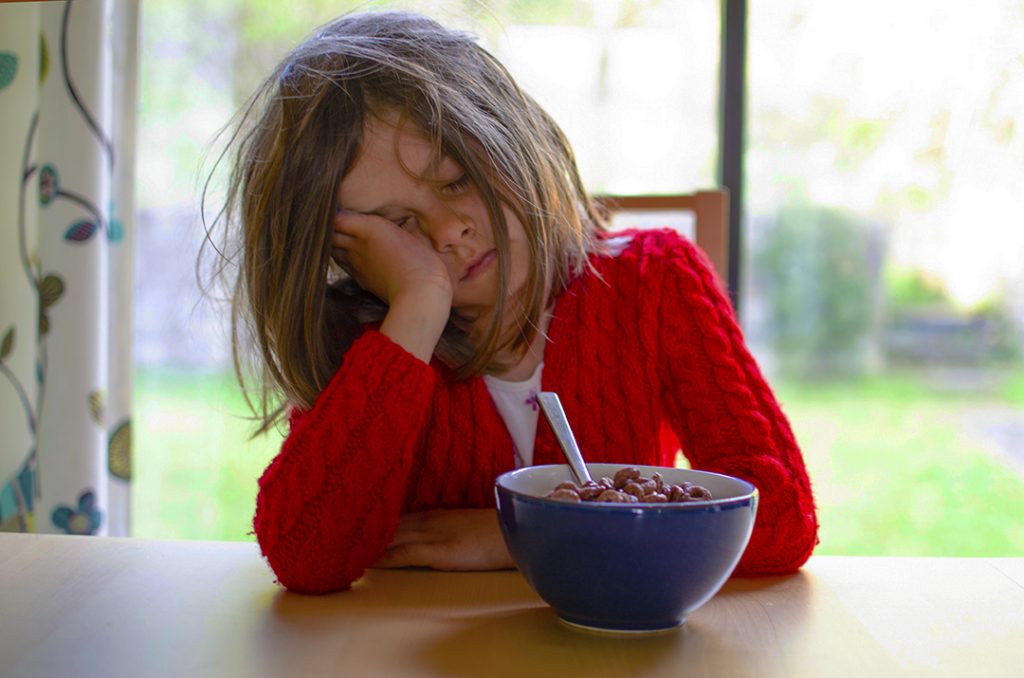

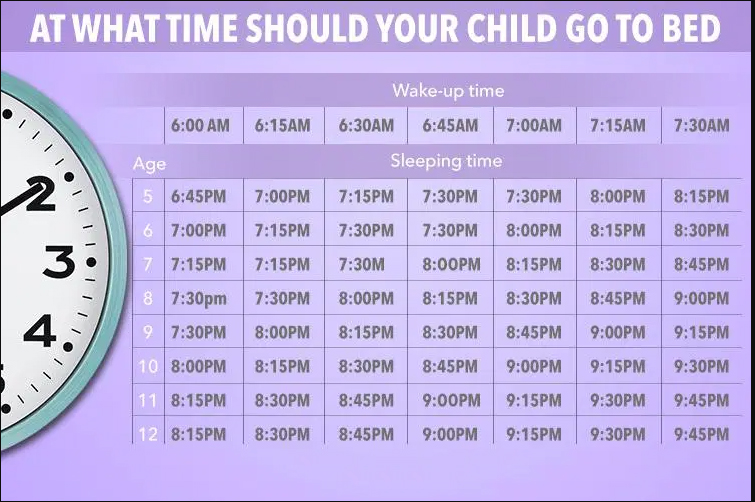
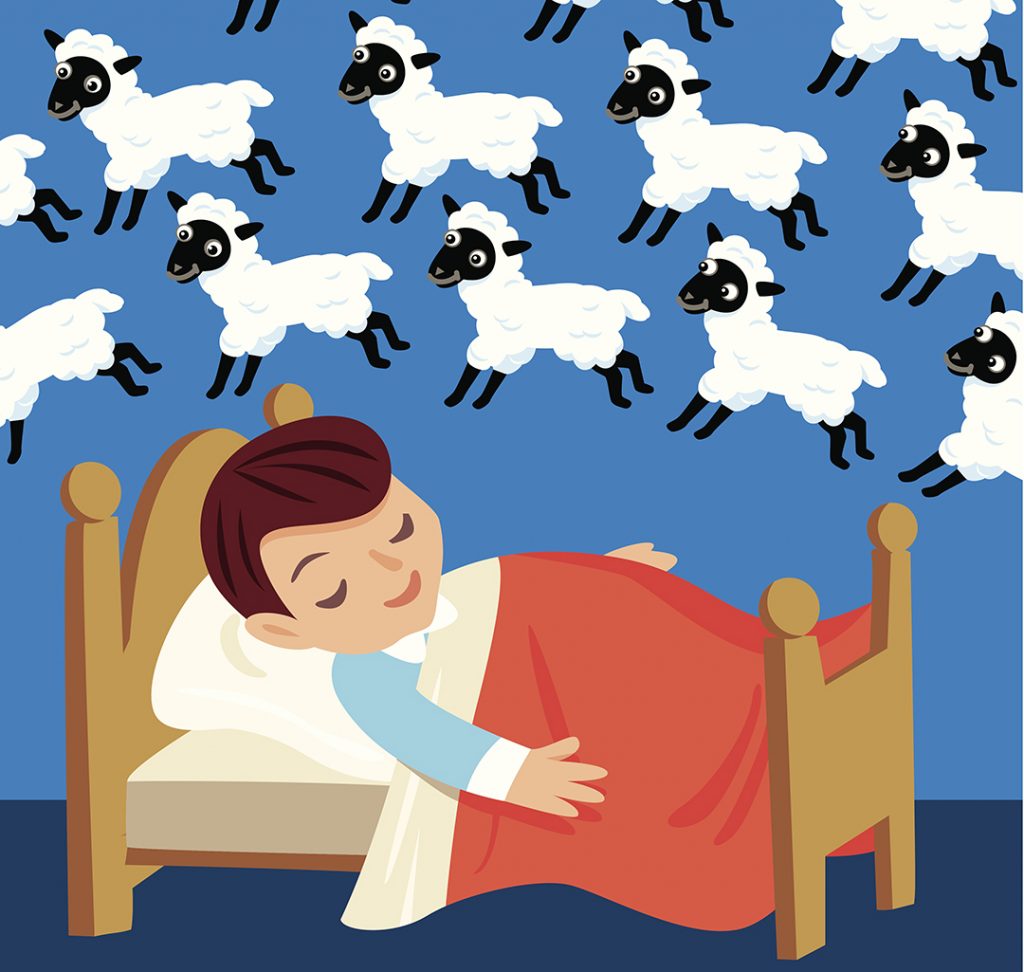








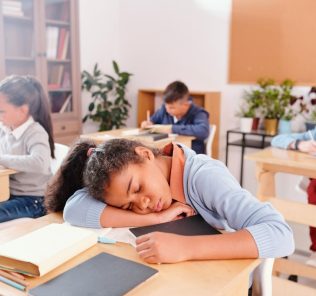




















Leave a Response